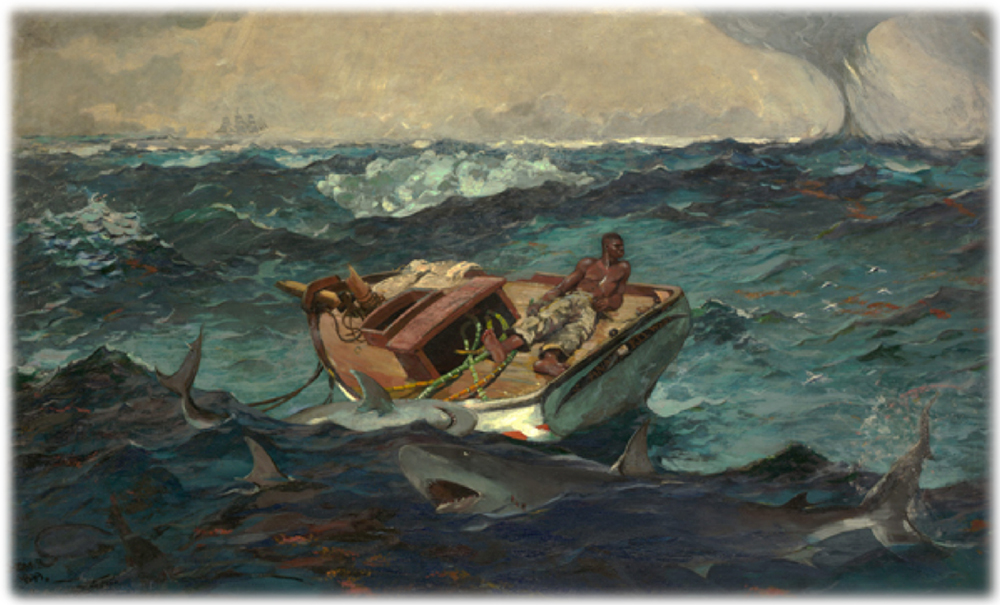“The Watery Part of the World”: The Humanities, the Ocean and the Anthropocene
Jeffrey McCarthy
Director, Environmental Humanities Program, U of Utah
GCSC Seminar Series
April 4, 2017
4:00-5:00 PM
210 ASB (Aline Skaggs Building)
Refreshments & meet the speaker at 3:45
 Abstract
Abstract
I want to talk about the ocean’s centrality to climate change, and about art’s role in communicating climate risk and climate recovery. We will focus on Shakespeare’s The Tempest, Joseph Conrad’s Typhoon and Winslow Homer’s paintings The Gulf Stream and Fog Warning. Painting and writing about the human place in a marine environment position us to recognize the ethical stakes in our climate future as well as the potential for an inclusive reinvention of our social contract. The ocean -‐-‐ the actual physical thing of tides and waves Melville’s Ishmael called “the watery part of the world” -‐-‐ is the primary space in which climate change manifests. Where that watery world overlaps with human lives we get the fiercest impacts of a hotter planet. Art depicting people disoriented by a fierce ocean offers one story fitted to the climate reality we inhabit now. These are aesthetic invitations to make sense of human futures in an unstable element. They show us we have accommodated and even thrived in such conditions before, and they give shape to the cultural priority of imagining the new climate.
Bio
Jeffrey Mathes McCarthy is Director of the Environmental Humanities Graduate Program and Professor (Lecturer) in the Honors College at the University of Utah. McCarthy’s research focuses on the cultural uses of nature, particularly literary representations of the natural world. He has published widely in academic and popular journals, and his books include Contact: Mountain Climbing and Environmental Thinking, Green Modernism: Nature and the English Novel, 1900-‐1930, and the forthcoming collection Conrad & Nature: A Collection of Essays. He has held research fellowships to the Oregon Humanities Center, the Harry Ransom Center at the University of Texas, and Edinburgh University’s Institute for Advanced Studies in the Humanities. He has been a Fulbright fellow to Canada and a research fellow at the Calgary Institute for the Humanities. He is an avid climber, and has recently rediscovered ocean sailing as yet another way to stay both humble and uncomfortable.
